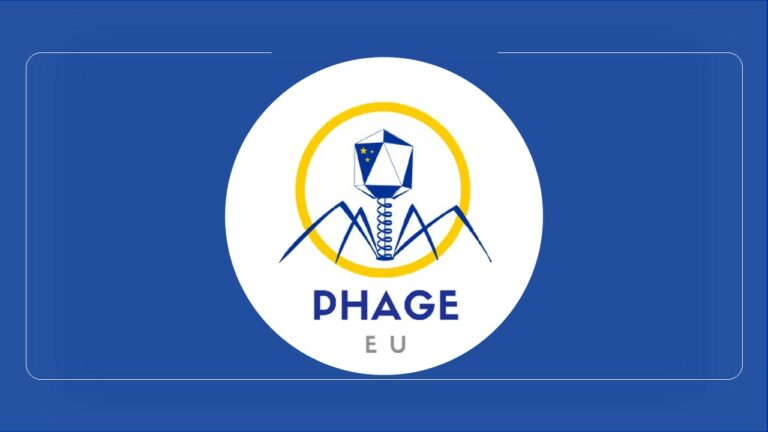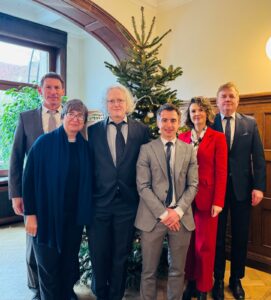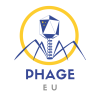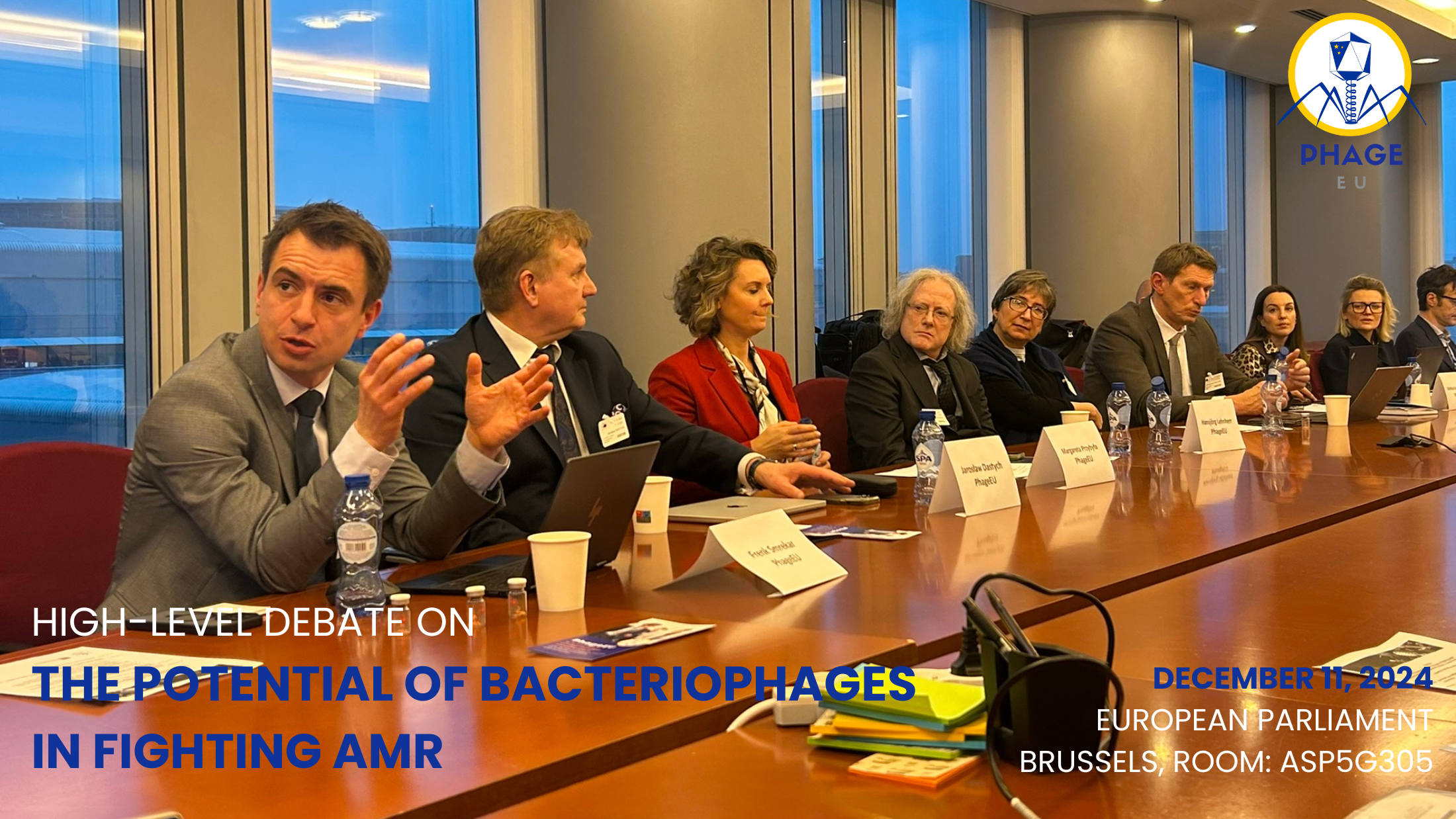Brussels, 11th July 2024
Bacteriophages offer solutions to fight AMR and reduce the use of antibiotics. This is especially important now, when antimicrobial resistance (AMR) is on its rise despite various efforts at European and global level. According to WHO estimations 1.91 million people could potentially die as a direct result of AMR in 2050. This situation requires urgent responses, such as development of alternative treatments, including bacteriophage products.
“We cannot leave any stone unturned in our fight against antimicrobial resistance. Everyone is aware that the antibiotic pipeline is severely broken and that there is an urgent need to look into alternative treatments. Here, especially bacteriophages could have a considerable potential to become an affordable and effective tool for bacterial control as a possible alternative to or complement for antibiotic therapy” argued Tiemo Wölken, Member of the European Parliament, S&D ENVI Coordinator and Member of the SANT Subcommittee when opening the High-Level debate on “Potential of bacteriophages in fighting AMR” on December 11, in the European Parliament in Brussels.

This High-level debate gathered around one table representatives of the phage community, European Parliament, European Commission, European Medicines Agency (EMA) and European Food Safety Authority (EFSA) as well as various One Health stakeholders.
The potential of bacteriophages has been already recognised by various decision makers, including Members of the European Parliament in their Resolution from June 2024. The same year EMA has issued scientific guidelines on quality, safety and efficacy of veterinary medical products designed for phage therapy and launched a consultation on the development of human medicinal products tailored to phage therapy. During the debate, an EFSA representative has also informed, that a new guidance document on characterisation and risk assessment of microorganisms used in the food chain is currently open for public consultation.
Despite these developments none of the phage products has been authorised so far to be widely available to EU consumers, farmers or food producers. This is why representatives of PhageEU have been calling on EU regulators to speed up European authorisation procedures in line with available regulations and cover remaining regulatory loopholes. They have also presented various practical applications of phages.
Dr. habil. Hansjörg Lehnherr, Senior Manager R&D at PTC Phage Technology Center presented main facts about the features of phages and gave an example of antibiotic free treatment of bovine mastitis in the cow shed. Prof. Jarosław Dastych, CEO of Proteon Pharmaceuticals S.A., President of PhageEU reminded about the history of phages and presented the state of authorisation of phage products globally. He also spoke about the use of phages for the purpose of animal health, on the basis of a bacteriophage feed additive for poultry production. Finally, Dr. Frenk Smrekar, CEO of JAFRAL Biosolutions focused on the application of phages in human medicine and underlined the need to maximise the number of clinical trials in Europe.
“The High-Level debate has confirmed that the dialogue between the phage community, various One Health stakeholders and EU regulators is needed in order to bring phage solutions closer to EU citizens. We are happy to see, that European Commission and relevant EU agencies want to work together with us and that the phage technology is gaining on recognition among EU decision makers” concluded Margareta Przybyla, PhageEU Secretary General.
Around 40 participants took part in the High-Level debate in the European Parliament and 100 more followed the discussion online.
As a result of the debate a “Common declaration on the recognition of the potential of bacteriophages in fighting AMR” has been drafted and already signed by Tiemo Wölken, MEP. This declaring will be soon available on the PhageEU website and open for signatures by like-minded stakeholders.

Phage EU is a coalition of likeminded stakeholders who represent phages in industry, the scientific community and civil society. We want to realize the full potential of phages in Europe.
Media Contact and Secretariat
Margareta Przybyla
PhageEU Secretary General
Contact Details
mprzybyla@phageurope.eu
Tel: 0032 476 591 091

